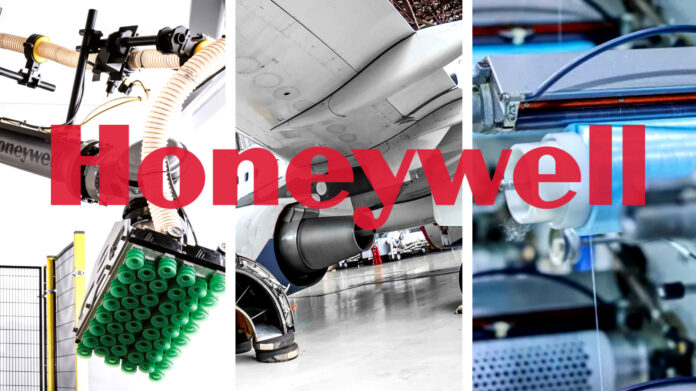US industrial giant Honeywell International has announced it will split into three standalone businesses, starting with the spin-off of its Advanced Materials business in late 2025 or early 2026, as previously announced, and followed by the two-way divorce of Honeywell Automation from Honeywell Aerospace in the second half of 2026. It mirrors the three-way split of rival country-mate rival General Electric (GE) in 2021, into distinct GE-branded aerospace, energy, and healthcare operations. 3M and Johnson Controls have also split their core operations in recent years.
Shareholders in Honeywell, promised a tax-free split of the automation and aerospace units, have been instructed the separate units will have more strategic focus and financial flexibility. They will hope their stocks variously trade upwards following the split – as old rivals’ have done.
Honeywell, the biggest and one of the last US industrial conglomerates, has invested $9 billion in corporate acquisitions since the end of 2023, including in the access solutions business of US-based Carrier Global ($4.95 billion), Italian aerospace tracking and timing tech provider Civitanavi Systems (€200 million), US aerospace defense tech provider CAES Systems ($1.9 billion), and the liquefied natural gas (LNG) business from US firm Air Products ($1.81 billion). Separately, it has agreed a deal to divest its personal protective equipment (PPE) business ($1.325 billion), expected to close in the first half of 2025. The firm has a market valuation of $138 billion, at writing (February 7).
It will continue to buy businesses to enhance each unit’s separate future trajectories. It said its board had completed a “comprehensive business portfolio evaluation”, ongoing for a year, to conclude three parts are better than one. The planned separations will see each new business have simpler strategic focus and greater financial flexibility, including around capital allocation priorities.
Following the completion, it said Honeywell Automation will be the “global leader of the industrial world’s transition from automation to autonomy”, serving various high-growth verticals. The decision posted 2024 revenues of $18 billion. Honeywell Aerospace, with $15 billion in revenue in 2024, will be “one of the largest publicly traded, pure play aerospace suppliers”, it said. Its customers include Airbus and Boeing. Meanwhile, Advanced Materials will be a “sustainability-focused specialty chemicals and materials pure-play”, it said. It holds “leading positions” in the supply of fluorine products, electronic materials, industrial grade fibres, and healthcare packaging solutions.
Vimal Kapur, chairman and chief executive at Honeywell, said: “Our simplification of Honeywell has rapidly advanced over the past year, and we will continue to shape our portfolio to create further shareholder value. We have a rich pipeline of strategic bolt-on acquisition targets, and we plan to continue deploying capital to further enhance each business as we prepare them to become leading, independent public companies.”
Honeywell Automation, as a standalone unit, will deal exclusively in the supply of Industry 4.0/5.0 solutions. Kapur said: “Honeywell Automation will create the buildings and industrial infrastructure of the future, leveraging process technology, software, and AI-enabled, autonomous solutions to drive the next generation of productivity, sustainability and safety for our customers… It will be better able to capitalize on the global megatrends underpinning its business, from energy security and sustainability to digitalization and artificial intelligence.
Investor firm Elliott Management, with a $5 billion stake in the business, has urged Honeywell to follow the leads of GE, 3M, and Johnson Controls, which have all spun-out into separate parts. It stated: “The enhanced focus, alignment, and strategic agility enabled by this separation will allow Honeywell to realize the opportunity for operational improvement and valuation upside. We look forward to continuing to support Vimal and the management team as they execute on the separation and deliver significant long-term value to Honeywell’s shareholders.”

